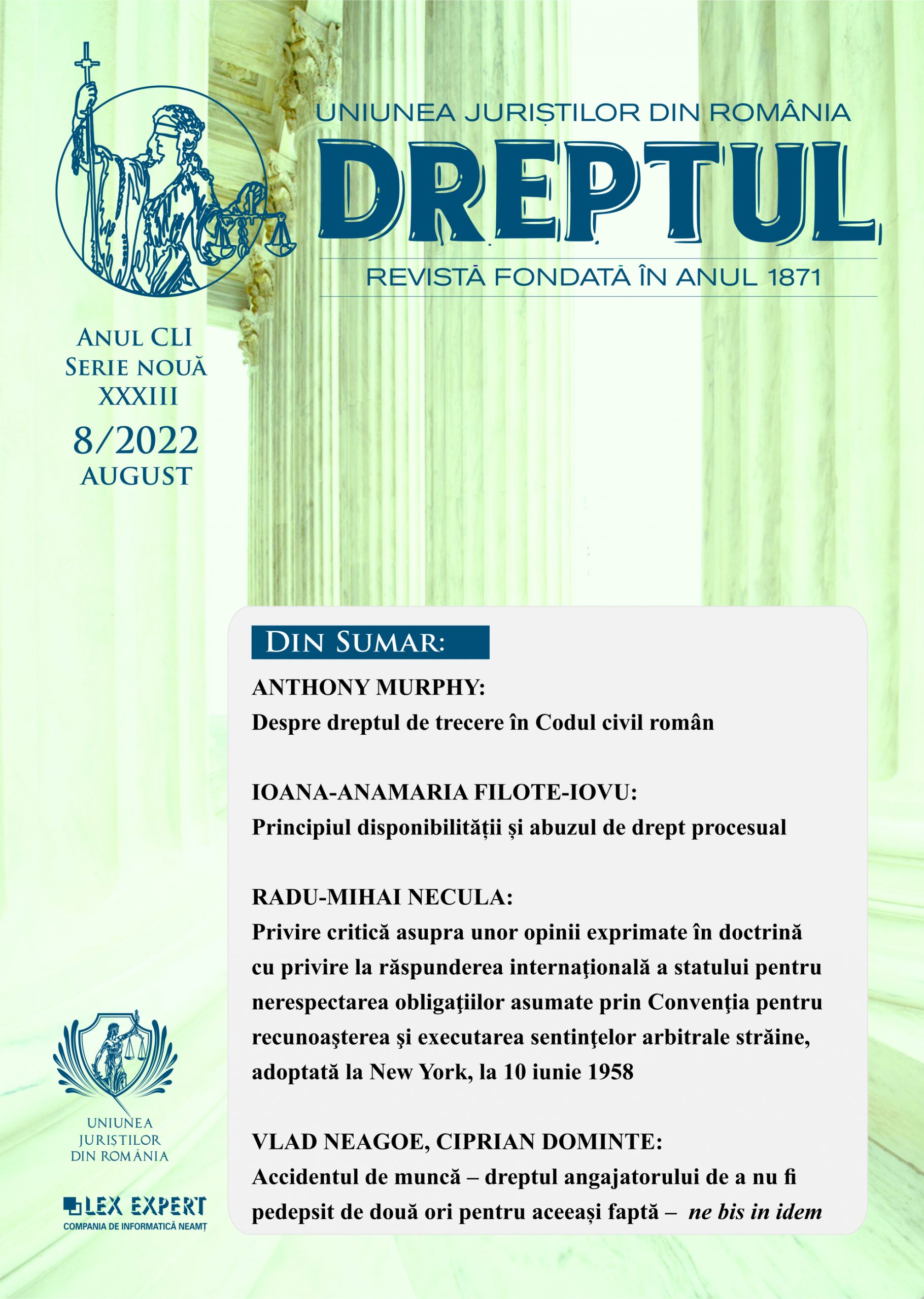Legal arrangements pertaining to neighbours’ relationships are permeated by the idea of community. A textbook example is the right-of-way, which arguably breaches the sacred inviolability of private property in its quest to provide adequate access to the p ublic road for a landlocked parcel. The present paper examines the manner in which the Civil Code of Romania (2009) managed to bridge the unbridgeable, i.e., the individualist essence of private property and the collectivist flavour of neighbours’ relationships. Methodologically, this article debuts with a brief historical and comparative study of the right-of-way from the viewpoint of related legislations (i.e., the French Civil Code and the Civil Code of Quebec), it examines the terminology employed by the legislator and analyses the legal regime of said institution. The author argues that the cornerstone of this fine balance is the legal nature of the right-of-way: in denying it the stature of a real right (ius in re), the legislator established this sui generis right as a legal limit to the exercise of private property. Consequently, the right-of-way is solely a creation of the law, whereas only its manner of exercise can be settled by way of contract, continuous usage or court decision. Therefore, the author stresses the semantical inconsistency encountered within legal literature, which confuses the very origin of the right-of-way, which is inherently legal in its nature, with the concrete manner of usage, which the legislator left to the will of the contracting parties or the judge summoned in the event of litigation, respectively. In addition, the author argues that a land book entry may cover the right -of-way only in the form of a notation, and not as a compulsory registration, either permanent (intabulation) or provisional, since the latter two solely concern tabular rights, which solely consist of real rights on
real estate.
DESPRE DREPTUL DE TRECERE ÎN CODUL CIVIL ROMÂN
15.00lei


